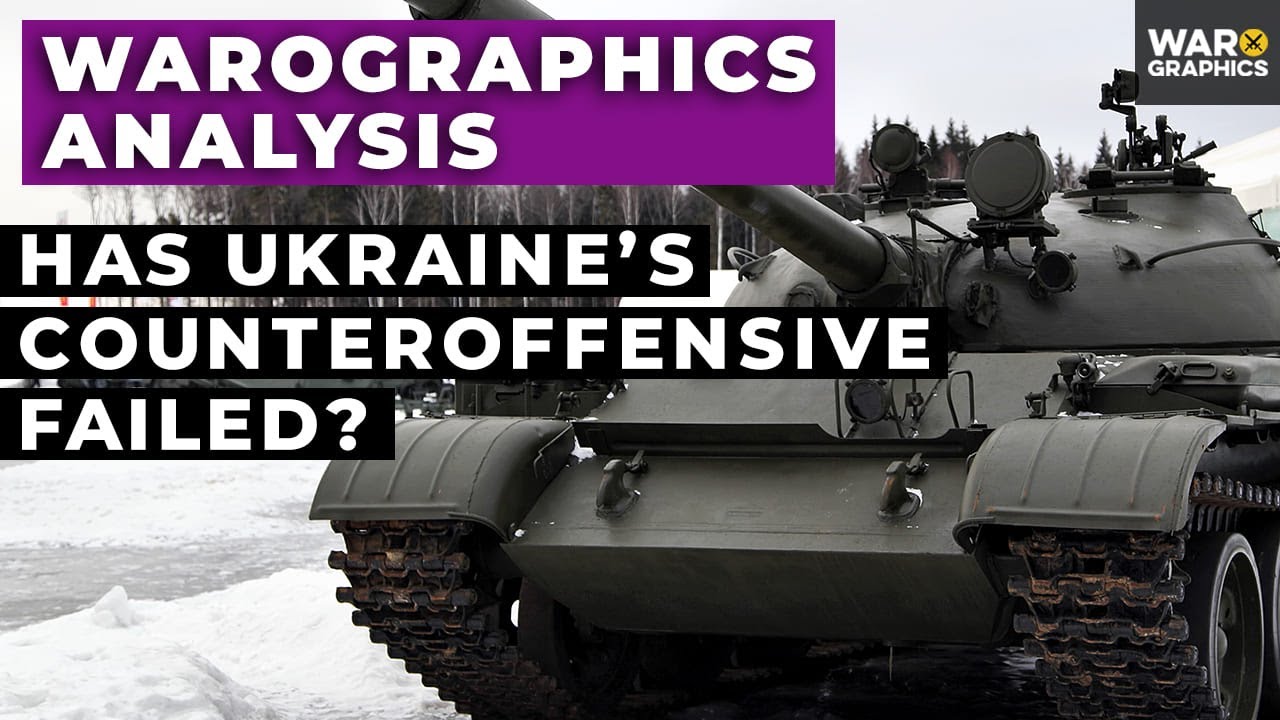Ukraine’s Make or Break: Analyzing the Russian War & Counteroffensive | Slow Progress & Harsh Costs Revealed. Can Victory Still Be Achieved? Find Out in This…
TLDR Awnser: No
Betteridge’s law of headlines: Any headline that ends in a question mark can be answered by the word no.
If they were confident enough to answer the question with ‘yes’, they wouldn’t include the question mark.
No.
The counteroffensive is definitely slower than expected.
The main reason is likely that the Russians have put up a stubborn defense of minefields + artillery, which combined with the lack of Ukrainian mine-clearing equipment, has formed an effective delay of the Ukrainian assault. Remember, its not necessarily the mines that are a problem, but the combination. As the few mine-clearers do their job, artillery pounds them and destroys them. Even if Ukraine counter-batteries and successfully kills the enemy artillery, its a trade Russia can make.
Its not just artillery, but the Russians can defend minefields because troop movement is constrained, and therefore predictable. It means that Russian defenders can ambush the parties who come in afterwards. Small groups of Russian ATGMs, or Helicopters, or Armor, have also defended the minefield with efficacy.
Finally, Ukraine is fighting with the goal of a 3-to-1 (or better) Kills / Death ratio. Due to the size of the Russian Army vs Ukrainian Army, any fight where Ukraine wins say 50 Russian casualties vs 25 Ukrainian casualties, is a fight Ukraine has lost.
The answer to all of these problems is… to slow down and carefully traverse the minefield with infantry and sappers on foot. It seems like Ukraine has finally obtained superiority with its artillery (combination of HIMARS and Tube artillery is winning the long-range war), so it seems like a safer bet to stay in the slower pace of artillery duels rather than attempting a fast breakthrough right now. Furthermore: soldiers on foot can clear a path through the minefield, and as dangerous as it is and slow… it will work eventually.
The main problem with the slow pace is that the equipment the NATO gave was designed for a quick breakthrough (Leopard Tanks and Bradley IFVs). So the equipment will have to sit, waiting to be used. The vehicles will have to wait until a path through the minefield is created, and defended.
The “threat” of a breakthrough remains there, even if the Tanks / IFVs aren’t being used right now. Russia knows that if any part of the line collapses, then all that equipment will pour through. This threat is seemingly more strategically useful than risking the equipment in the dangerous minefield.





